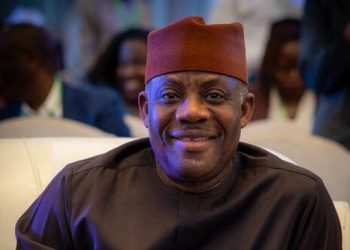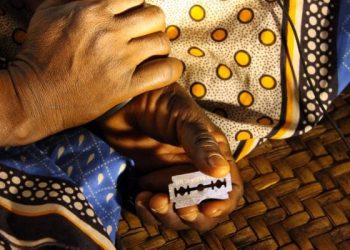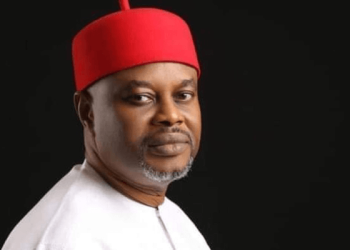Leadership in Burkina Faso, one of the world’s poorest countries, returned to the grip of the military last week after the forced resignation of its sit-tight ruler, Blaise Campaore. But despite the military taking charge in what is believed to be on a temporary basis, the credit for the ouster of the president, whose rule did not brook any opposition for 27 unbroken years, must go to the citizens who, once again, demonstrated that, on matters of democracy, sovereignty always rests with the people.
This time-tested democratic lesson, however, came to Campaore the hard way after he attempted to railroad his way into another term through a parliamentary manipulation of the constitution. After four disputed elections that paved the way for his four terms in office, he was heading for the end of his tenure when he suddenly triggered off a constitutional amendment that would enable him to contest for a fifth term of another five years. (Of course, it goes without saying that if he had contested, winning would have been assured, as usual, regardless of what the electorate said.)
Attempts at tenure elongation, by changing rules midway into the game, are very common with despots the world over. But the former Burkinabe leader’s latest attempt to manipulate the people was resisted through a very violent protest that led to the burning of the parliament building. Campaore, whose rule had been rocked intermittently by protests over one issue or the other, knew that his time was up when over one million people, in a country of 18 million people, emptied into the streets to ask for his resignation.
Within a space of days, the person who was trying to elongate his tenure shifted to asking for a year to hand over to an elected government but ended ignominiously with an outright resignation.
Although the constitution makes provision for the head of the parliament to take over in the event of the resignation of the president, until an election is organised, the soldiers have moved quickly to fill the vacuum created by the sudden exit of Campaore. But this is an opportunistic move that must be resisted by the people. So eager were the soldiers to grab power that two of them emerged simultaneously, claiming to be the legitimate new leader. While Honore Traore, a general and Chief of Joint Staff, was the first to lay claim to the Presidency, another officer, Yacoub Zida, a colonel, is the latest to have made a similar claim.
It is important to note that the popular uprising that ended Campaore’s tenure would amount to nothing if the people allow the soldiers to steal their victory. Already, reports have it that after a week of protests, life seemed to be returning to normal. It will amount to a capitulation, an unfinished business, if the people allow Zida to walk away with their victory, especially as he has reportedly announced the suspension of the constitution.
There is absolutely no basis for suspending the constitution. Why should the military that issued a statement, saying, “Power does not interest us, only the greater interest of the nation,” be suspending the constitution? Perhaps, what the Burkinabes need now is international support, a few of which have been coming in. But ultimately, the battle belongs to the opposition and the citizens to keep the flame of democracy burning.
It is important that the African Union has spoken in support of the people and democracy by threatening the country’s military with sanctions if they failed to organise elections in two weeks. Other regional players, including Nigeria, should give the usurpers a similar ultimatum. Describing as unconstitutional the military take-over after Campaore’s resignation, the AU said, “We have taken note of the origin of the popular revolt that led to the military getting power. So we determine the period of two weeks and after that period we are going to apply sanctions.” Similarly, the United States State Department, said, “We condemn any attempts by the military or other parties to take advantage of the situation for unconstitutional gain and call on all parties to respect the people’s support for the democratic process.” From the United Nations Office for West Africa, there has also been a call on civilians to be at the head of the proposed transition government.
The precipitate end to Campaore’s tenure should serve as a lesson to many of those sit-tight and manipulative leaders in Africa, who have refused to learn from the fate that befell scores of other African tyrants, including Moammar Gaddafi and Hosni Mubarak, that took their people for granted. Although Campaore came to prominence on the coat-tails of his friend and revolutionary, Thomas Sankara, he was not just satisfied with being under the latter’s shadows. Driven by an inordinate ambition, he soon overthrew his trusted friend in a military coup. He was to transmute into a civilian leader all in a bid to perpetuate his stay in power.
Long after Campaore must have been consigned to the dustbin of history, one man that Burkinabes and indeed Africans will never forget was Sankara, the friend he betrayed and murdered 27 years ago.












































